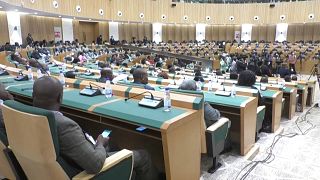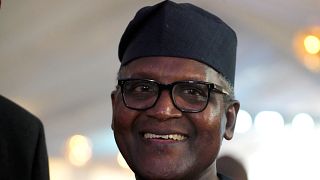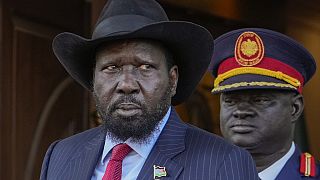Zimbabwe
Parliament in Zimbabwe has approved a controversial new law that criminalises acts that damage "the sovereignty and national interest" of the southern African country.
The new law was passed hours after the government announced nationwide elections for August 23rd.
Critics claim the new law kills free speech.
"What they are criminalizing is differing opinion against Zanu-PF and different opinion from Mnangagwa himself, who is a presidential candidate for Zanu-PF and this happens at the edge of an election showing without any doubt that the envelope of reform is being done by Zanu, contrary to what they put particularly in the international community, that they are reforming", said Ostallos Siziba, National Deputy Spokesperson for the opposition's CCC party.
A lawmaker from the ruling Zanu-PF party, told parliament the new law aimed to encourage Zimbabweans to be "patriotic".
The bill is the latest in a series of moves that critics say are aimed at shutting down dissenting voices in the run up to the elections.
Njabulo Ncube is the National Coordinator for the Zimbabwe Editors Forum:
"They want to be seen to be hardliners so they want this law to try and put fear in the hearts of the electorate, the hearts of the opposition by using this bad law which is coming on the eve of an election", said the national coordinator.
Eighty-year-old Emmerson Mnangagwa, who replaced strongman ruler Robert Mugabe in 2017 after a military-led coup, is seeking a second term in August.
His main challenger is Nelson Chamisa, a 45-year-old lawyer and pastor, who leads the recently formed CCC party.












Go to video
Uganda's army on the hunt for opposition leader Bobi Wine
01:14
Tanzania cancels independence day celebrations after calls for protests
01:26
Tanzania: Opposition accuses forces of hiding bodies after election violence
01:03
Burkina Faso lawmakers approve independent electoral commission dissolution
01:00
45,000 march in The Hague urging government to prioritize climate action
00:55
Seychelles to hold rerun presidential election after no outright winner